What is Cloud Diplomacy?
Diplomacy changed considerably during the twentieth century. The word ‘diplomacy’ strictly described any face-to-face contact between the governments of one nation and the governments of another. However, the use of emerging technology in diplomacy has been highly diverse over the last decade. Norwegian Ambassadors are using Skype to communicate with university students in the field of public diplomacy, while Palestine is adopting Facebook as a tool for communicating with Israeli people.
Recently, as a result of the COVID-19 pandemic, the world experienced dramatic changes and faced increasing uncertainty, and at a pivotal time in history where the world’s leaders wanted to respond to threats and move quickly, technology once again emerged as a powerful tool for aid. Countries such as China in an effort to address the challenges posed by the pandemic and preserve diplomatic relations between countries were indeed able to incorporate foreign policy and technology to establish a new method of diplomacy called ‘cloud diplomacy’.
In the first half of 2020 alone China attended three international conferences and numerous meetings in relation to COVID-19 with over 60 world representatives or heads of international organizations. While diplomacy has always been considered an essential element of international cooperation, the COVID-19 pandemic only stressed its value and the need for international cooperation to solve the pandemic, secure the economy, and restore international order.
But what is ‘cloud diplomacy’, and how is it different from traditional diplomacy?
‘Cloud diplomacy’ is the use of technology by countries to identify and develop strategic objectives and goals, as well as to carry out diplomatic functions effectively. It includes the use of a variety of electronic instruments to promote a country’s interests in other countries while also ensuring that diplomatic ties between the countries are strengthened. It’s practically conventional diplomacy via a different means; technology. Similarly to conventional diplomacy, it involves representing and promoting the home country, maintaining bilateral and multilateral relations, providing consular services, and engaging in social activities.
Traditionally, diplomatic activity was dominated by government-to-government interactions; nevertheless, cloud diplomacy has allowed a plethora of players to debate international policy-making, increasing the influence of public opinion on the foreign policy agenda. This form of diplomacy opens up new opportunities for other players to collaborate with prominent individuals and organizations on multilateral diplomatic campaigns, while the connection between people and government enables ambassadors to convene and communicate with non-traditional communities, allowing citizens to influence their governments in ways that were not previously feasible. Additionally, cloud diplomacy has enabled states with broken traditional diplomatic relations to find new ways to learn about each other’s foreign policy positions.
Moreover, cloud diplomacy has demonstrated the ability to accomplish a range of policy goals that traditional diplomacy is unable to, including:
Knowledge management: Harnessing departmental and whole-of-government knowledge in order to maintain, distribute, and maximise its use in pursuit of national interests abroad.
Public diplomacy: Maintaining interaction with audiences as they move digitally and using emerging messaging technologies to respond to and reach core audiences with key messages, as well as influence global online influencers.
Information management: To assist in aggregating the massive flow of information and using it to further educate policymaking and predict and react to new social and political movements.
Consular communications and response: To provide direct, personal contact channels with people travelling abroad, as well as manageable communication channels in crisis situations.
Disaster response: Using connective devices to their full potential in emergency management scenarios.
Internet freedom: Development of software to keep the internet accessible and secure. This has the concomitant goals of fostering free expression and liberty, as well as weakening authoritarian regimes.
External resources: Developing digital mechanisms to rely on and harness global resources in order to advance national objectives.
Policy planning: In response to the internationalisation of the bureaucracy, to allow better supervision, management, and preparation of international policy through government.
Whereas diplomacy has always had to adapt and change to the environment’s specific contact forms in an increasingly interconnected environment; the opportunity to collect and exchange information to large audiences at exponential rates has provided new ways for policymakers and government agencies to share information and set strategic agendas outside of traditional means.
If diplomacy is something you are interested in and eager to learn about, why not sign up to our Diplomatic Protocol training course offered by the US Institute of Diplomacy and Human Rights, learn the fundamentals of diplomatic practice and get certified. It is a great way to both learn and ‘build your professional authority’ in the diplomatic field.
To conclude, differently from conventional diplomacy, it is important to acknowledge that even in this new era of diplomacy there are still ways cloud diplomacy fails to perform as opposed to conventional diplomacy. Cloud diplomacy for instance fails to provide a platform or opportunity to develop trust and empathy, both of which are required when dealing with sensitive and political issues. Yet, as shown during the pandemic crisis, the development of cloud diplomacy has ensured business stability, and further improved inclusion by encouraging involvement without being physically present; often hampered by travel and other costs, establishing itself as an undeniable new force in diplomacy.
Reference list:
Full article: Foreign policy in an era of digital diplomacy (tandfonline.com)
Digital Diplomacy: Emotion and Identity in the Public Realm in: The Hague Journal of Diplomacy Volume 14 Issue 1-2 (2019) (brill.com)
Xi’s ‘cloud diplomacy’ helps world emerge from pandemic with enhanced solidarity – Chinadaily.com.cn

